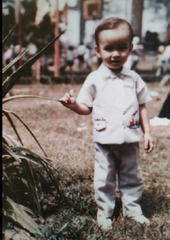‘I’m mixed-race, is Cambridge University right for me?’Posted in Articles, Autobiography, Campus Life, Media Archive, United Kingdom on 2019-01-22 16:17Z by Steven |
‘I’m mixed-race, is Cambridge University right for me?’
BBC News
2019-01-22
Anoushka Mutanda Dougherty has been offered a place at Cambridge University, but she’s mixed-race and from a state school – and only 3% of students who started at Cambridge in 2017 were black, or mixed-race with black heritage. So is it the best place for her? At this point, she’s not sure.
Cambridge is the second-oldest university in the English-speaking world. Cambridge is the fourth-oldest surviving university in the world. Cambridge has produced, so far, 90 Nobel prize winners – and Cambridge, this educational powerhouse, just might not be where I want to go. At least, that’s how I feel right now, a week after finding out that I got a place…
Read the entire article here.



